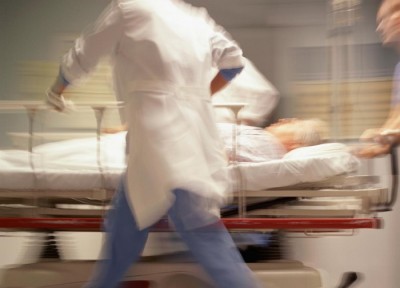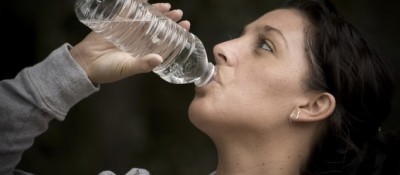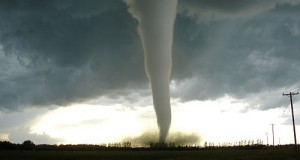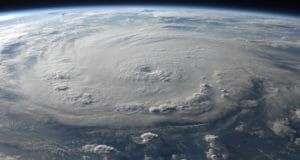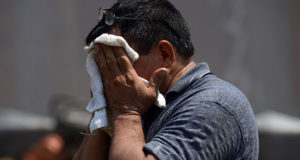Dehydration is a real threat in emergency situations – and can kill. American water intake is already lower than it should be, with nearly 75 percent of American’s chronically dehydrated.
In high stress situations when you’re in a rush and on the run, with limited clean water sources and increased threat of illness, dehydration can quickly endanger a person. However, dehydration is often a quiet threat. People can feel “off” and symptoms can mimic other everyday annoyances like headaches and fatigue. Sometimes, people fail to realize what is happening until their bodies are in danger of shutting down. Knowing the symptoms of mild dehydration can help you attack water loss sooner and lessen the threat of medical emergencies and death.
Early Dehydration Symptoms
Fatigue is often caused by lack of sufficient fluids, but many people first assume it is a result of lack of food, rather than lack of water. Imbibing caffeinated drinks like colas, teas and coffees can increase the risk of or contribute to dehydration. Alcohol can as well. Thirst is an obvious early sign of dehydration. But there are others. Dizziness, lightheadedness and headaches can signal dehydration. Feeling drowsy or fatigued are other early signs. A dry or sticky mouth and dry skin, along with decreased urination and increased constipation, signal trouble. While most of these can be caused by other problems, it’s best to tackle these signs early as dehydration symptoms and increase your fluid intake. Drink clear fluids, like water, broth and sports drinks.
Serious Dehydration Symptoms
While you may be able to monitor yourself and pick up on early dehydration symptoms, in emergency situations, you will also want to keep a close eye on other members in your survival team, especially the young and old. Children may not pick up on their symptoms until major intervention is required.
Ultra-Efficient Water Filter Fits In Your Pocket!
Some serious symptoms are irritability, confusion, delirium and unconsciousness. If a member of your team becomes very difficult or irrational, evaluate them for fluid loss. Fever, lower blood pressure, rapid heartbeat and rapid breathing can signal dehydration. Sunken eyes, extreme thirst, dry mouth, shriveled and dry skin, little urination and urine that is darker than normal are other severe symptoms. Symptoms like these require immediate medical attention.
First – Increase Fluid Intake
Fluid intake needs to increase while fluid loss is slowed. Sipping small amounts of water is a good place to start, even with those who are vomiting. Slow is key. Drinking carbohydrate- and electrolyte-containing drinks are excellent choices. Keep sports drinks like Gatorade or Pedialyte in your emergency kit and your bug-out bag (each are available in powders). Another good option, especially for children who are refusing to drink liquid, are popsicles made from juices and sports drinks. Sucking on these will not only help replace lost fluids, but can help with cooling an overheated person as well. Sucking on ice chips works in a similar way. If the person has an injured or sore mouth, then sipping liquids through a straw can help alleviate the discomfort.
Second – Cool the Person Down
Dehydration is sometimes linked to heat exposure, heat exhaustion or heat stroke. Remove any extra clothes and loosen what remains. Allow the person’s skin to breathe and the body’s natural cooling processes to run at their best. If possible, move the person to an air-conditioned area. If not, use fans or keep them in shaded areas and use spray bottles with lukewarm water. This performs the same process as sweating, but it doesn’t lead to bodily fluid loss like sweating does. Placing a wet towel on the person is also a great way to slowly cool a person down. Suddenly cooling a person can be dangerous, so keep it gradual. If a person starts shivering, slow things down. Shivering increases body heat, the exact opposite of what you’re trying to achieve. If the person is collapsed or unconscious, fluids need to be given intravenously. The techniques for doing this are beyond the scope of this article, but if you live in a hot climate a good distance away from medical help, it may be beneficial to get supplies and training on how to administer fluids intravenously. Talk to your doctor or health care provider to prepare.
Prevention
The best “cure” for dehydration is prevention. Planning ahead can go a long way toward keeping a body strong and performing well in emergency situations.
Keep extra water and sports drinks or powders in your bug-out bag. If you have nursing infants, make sure you have extra water for mom, and include milk replacer formula in your bag. In your natural disaster evacuation plan, make note of water locations. Make sure you have a water filtration device as part of your bag.
If you or loved ones have to be active in hot weather, increase fluid intake. Remind children and older adults to keep drinking. Designate someone to make sure an incapacitated or injured person is getting the fluids they need, since they can’t get them on their own. If you have limited water supplies or it is very hot out, limit substantial movement to the cooler parts of the day. Forego alcohol and caffeinated drink consumption. Wear loose, light-colored clothing in warmer weather and try to break up the time you spend in hot areas. This can help lessen the cumulative effects of heat and fluid loss.
In emergency situations, stress is high and adrenaline can mask some dehydration symptoms. Keep checking on each member of your team or family and keep fluid replacement frequent. Dehydration is far easier to treat and recover from when caught and dealt with early on.
Do you have any dehydration emergency tips? Share them in the section below:
 Off The Grid News Better Ideas For Off The Grid Living
Off The Grid News Better Ideas For Off The Grid Living

